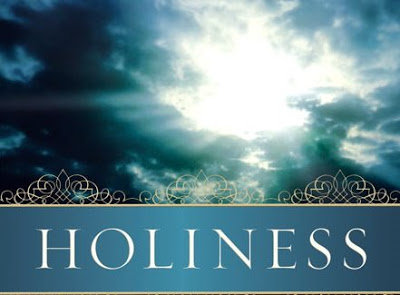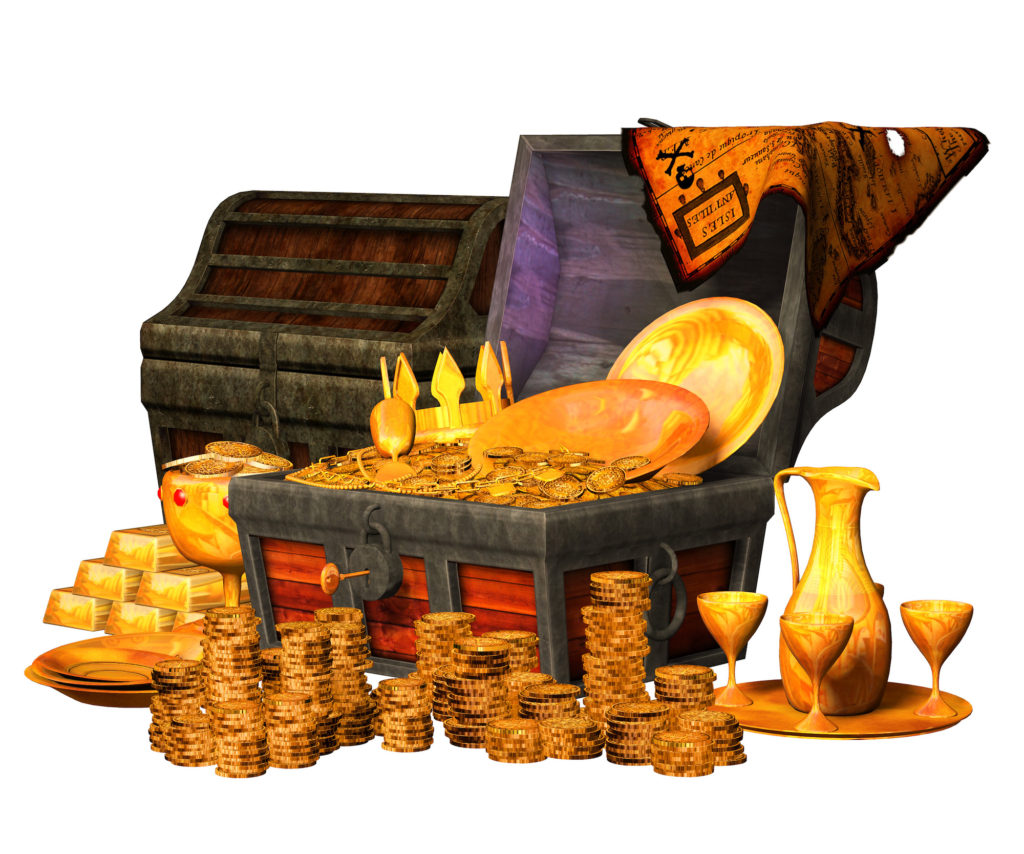The destiny of the saint is to be a king or a priest in the millennium under King Yeshua the Messiah, and the redeemed believer is now in training to fulfill their ultimate destiny. What does this mean and how are we to live and act in preparation for the future as glorified sons and daughters of YHVH Elohim? Watch and learn to discover what the Bible says about this wonderful truth! This is a stirring, provocative yet encouraging video.
Tag Archives: Holiness
Leviticus 19 on Welfare, GMOs, Beards

Leviticus 19:2 and 3, Be holy…revere. Reverence for or fear of parents is part of walking in holiness. The Jewish sages say that this commandment prohibits, for example, children from sitting in their parents’ favorite chair, from interrupting them, contradicting them in a discourteous manner or otherwise showing them disrespect. Honoring one’s parents, as mandated in the Ten Commandments, also refers to caring for their personal needs. This is sometimes easier said than done, but it is part of the walk of holiness and a fulfillment of Torah. How would our society be improved were all members conscious of this one commandment alone? Though the Scriptures admonish children to obey their parents, obeying YHVH’s commandments (e.g., the Sabbath) takes precedence over the wishes of parents should these be contrary to the Word of Elohim. Observing the seventh day Sabbath is a way of honoring our Heavenly Father, as well, since he is our Creator. This is one reason that the instructions of verse three follows verse two.
Leviticus 19:3–4, You shall fear/revere…sabbaths. What is the relationship between children revering (or honoring) their parents, observing YHVH’s sabbaths (including the annual appointed times or festivals) and shunning idols? Is there a cause-and-effect chain reaction relationship between these three things? If so, what does this teach parents about how to raise their children to help keep them in the paths of righteousness later on? Honoring our parents teaches us to fear and reverence Elohim who gifted us with life through our parents, while keeping YHVH’s weekly and annual sabbaths (the biblical feasts) helps us to stay in the paths of righteousness and, hence, in a right spiritual relationship with our earthly parents and our Heavenly Parent.
Leviticus 19:7–8, Not be accepted. What are rejected offerings? The Torah teaches that offerings can be disqualified because YHVH’s protocols for making the offering were not followed. The peace offering was a voluntary offering where the offerer’s expresses thanks to Elohim and seeks friendship or communion with him. It celebrated a good relationship between YHVH and the offerer who had repented of his sin, and was now at peace with his Maker. (Actually, this is a prophetic picture of and the Torah basis for the New Testament communion or the Lord’s supper ritual.) What lessons are in this for us? In the larger picture, for example, YHVH has given us specific instructions to come into a spiritual relationship with him and to obtain his free gift of eternal life. How is this relationship achieved? (See John 3:15–18, 36; 5:24; Acts 2:38; 3:19; 1 John 1:9; Rom 10:9–10,13; 16:31.) Who is the doorway into that forever relationship with our Father in heaven? (Read John 10:7–10.) What does Yeshua say about those who invent self-styled religious systems in an effort to obtain immortality while circumventing YHVH’s spiritual door? (See John 10:1.) YHVH sets the rules, and it is up to man to follow them. Those who don’t will be rejected.
Leviticus 19:6–7, It shall be eaten…the third day. In Scripture, the terms first, second and third day can have prophetic significance (e.g., Hos 6:2; Gen 22:4; Luke 13:32; Exod 19:11, 15) by referring to the salvational work of Messiah Yeshua that occurred at his first coming, and which will continue through the first, second and third millennia after his first coming. Day three would correspond to the beginning of the seventh millennia from the creation of man—a date we must be very near.
If Torah reveals that the peace offering was not accepted on the third day, what is this suggesting prophetically? Leviticus 7:17–18 says of the same offering that the portion of the sacrifice which remains until the third day shall be burnt with fire, while Leviticus 19:6–8 says that the person who eats the peace offering on the third day will “bear his iniquity” and “will be cut off from his people.” That is, the peace offering will be of no avail to that person, and they will not have peace with their Redeemer. What is this seem to be telling us prophetically?
Is a day coming when the door of opportunity for salvation will be shut (as was the case when the door of Noah’s ark was shut before Elohim brought judgment upon the earth by the flood, Gen 7:16)? That is, in the end times, will the period of grace that we are now in end just prior to that time when the wrath of Elohim will be poured out upon the unregenerate (Rev 15–16) just prior to the return of Yeshua? If so, this begs the following question: Are you saved by the blood of Yeshua, the Lamb of YHVH? Have you repented of your sins (violation of YHVH’s Torah-laws [1 John 3:4]), and are you walking in a righteous and obedient relationship with your Heavenly Father through Yeshua the Messiah by the power of the Ruach Kodesh (Set-Apart Spirit)?
For he says, “I have heard you in a time accepted, and in the day of salvation have I succoured you: behold, now is the accepted time; behold, now is the day of salvation.” (2 Cor 6:2)
Leviticus 19:9, Corners of your field.Leaving the corners of the fields unharvested, and leaving the gleanings in one’s field for the poor was a wonderful way to help the impoverished and disadvantaged—the poor that Yeshua declared would always be among us (John 12:8). There was no government welfare system in the Torah for those who were able to work. Moreover, YHVH commands us to work for six days and then to rest on the seventh day or Sabbath (Exod 20:8–11), and that if a man doesn’t work, neither should he eat (2 Thess 3:10), and that a righteous man provides for his household (1 Tim 5:8). However, just because a person is poor doesn’t mean that they are lazy. They may be poor for a variety of reasons other than slothfulness. So, since there will always be poor people (John 12:8), helping the poor is a timeless principle of how YHVH expects his people to show love for those who are less fortunate. The Torah here, as understood by the Jewish sages, teaches that we are first obligated to help the needy of our immediate physical family, then our extended family, and finally the poor in general (Deut 15:7–8 cp. Deut 14:28–29 and 26:12–13). What do you do to help the poor? When was the last time you extended your hand of love to a person in need? (Let’s not forget what Yeshua teaches us in Matt 25:31–46. Also note Jas 1:27; John 3:16.)
Continue readingWithout Holiness, No One Will See Elohim! Holiness Is YHVH’s Chief Quality

Our modern society has no concept of holiness. NONE whatsoever! This is because there is no fear—either reverential or dread—of Elohim. NONE! People, generally, are not only unaware of Elohim, but could care less. Live for them moment, make money and pursue the lusts of the flesh and eyes, and do what feels good is all most care people care about. And we wonder why society is ripping apart at the seams and lawlessness, anger, suicide, drug addictions, hatred and strife abound everywhere? Are we that clueless and lost as a society to be able to add two and two? Read on for the answer to these problems.
Hebrews 12:14, Holiness…see YHVH.
Holiness is the chief attribute of Elohim and the most defining aspect of his character. It has to do with the fact that Elohim is entirely good and without evil or moral defect and totally sinless. This is why the spiritual beings around his heavenly throne are constantly crying, “Holy, holy, holy” in his Presence (Isa 6:3; Rev 4:8). This is why one of his titles is The Holy One of Israel,which is used more than thirty times in the Tanakh (e.g. 2 Kgs 19:22; Ps 71:22; Isa 1:4; Jer 50:29). This is why the high priest who ministered in the Tabernacle of Moses and later in the temple wore a golden crown or headplate with the words inscribed on it, “HOLINESS TO YHVH.” Not only was this pointing upward to YHVH’s set-apartness, but man himself is to become holy or set-apart even as YHVH Elohim is set-apart, for we read in the Epistle to the Hebrews that the attribute of holiness is a prerequisite for a man coming into the Presence of Elohim (Heb 12:14).
YHVH Elohim made mankind in his own image (Gen 1:27), so that man could eventually become his glorified spirit children (John 1:12; Rom 8:14–15; 2 Cor 6:18; Gal 4:5–6; 1 John 3:1–2; Rev 21:7). As part of the process of becoming an immortal child of Elohim, man must become holy as he is holy (Lev 11:44, 45; 20:7, 26; 1 Pet 1:16). This is the ultimate destiny of those who will submit to YHVH’s process of transforming man from profane or polluted, sin-ridden beings to becoming holy or set-apart. What does this process involve and how does it affect you?
YHVH Is Preparing His Saints to Be a Kingdom of Priests
In the Bible, YHVH declared that it was the destiny of the Israelite nation to become a chosen and peculiar people and a kingdom of priest—to be special and unique among the nations of the world—to reflect the character and nature of YHVH Elohim—to be holy (in Hebrew, kadosh) as he is kadosh. The Hebrew word kadosh means “sacredness, consecrated, set-apartness or separateness.” Set-apart or separate from what? From the sin, profaneness and pollutions of the world with all of its sin and rebellion against the Creator. YHVH Elohim is set-apart or kadosh in that he is transcendent or above the mundane with its sinfulness. He invites humans to transcend the pollutions of the carnal and the mundane and to come up to his level. The saints as the end times priesthood of Yeshua need to embrace and internalize this identity for themselves as we will discuss below.
Now therefore, if you will obey my voice indeed, and keep my covenant, then you shall be a peculiar treasure unto me above all people, for all the earth is mine and you shall be unto me a kingdom of priests, and a set-apart nation. (Exod 19:5–6)
For you are an set-apart people unto YHVH your Elohim. YHVH your Elohim has chosen you to be a special people unto himself, above all people that are upon the face of the earth. (Deut 7:6 cp. 14:2)
What does this have to do with me, you might ask? Everything, as we’ll see shortly.
The Israelites were unique because YHVH gave them his Torah-commandments—his instructions to show them how to live righteously and how to love him and their fellow man.
You have [distinguished] YHVH this day to be your Elohim, and to walk in his ways, and to keep his statutes, and his commandments, and his judgments, and to hearken unto his voice: and YHVH has [distinguished] you this day to be his peculiar people, as he has promised you, and that you should keep all his commandments and to make you high above all nations which he has made, in praise, and in name, and in honor; and that you may be a set-apart people unto YHVH your Elohim… (Deut 26:17–18 cp. Isa 43:1; Tit 2:14)
As such, YHVH commissioned Israel to become a light to the heathen nations around them and by their good example to lead them to YHVH—the one true and holy or set-apart Elohim.
Therefore be careful to observe them; for this is your wisdom and your understanding in the sight of the peoples who will hear all these statutes, and say, ‘Surely this great nation is a wise and understanding people. For what great nation is there that has Elohim so near to it, as YHVH our Elohim is to us, for whatever reason we may call upon him? And what great nation is there that has such statutes and righteous judgments as are in all this Torah-law which I set before you this day? (Deut 4:6–8).
So that Israel could be a spiritual lighthouse to the world to lead them to the Creator, YHVH in his sovereignty positioned the nation of Israel at the crossroads of the major trade routes of the ancient world—between three continents: Africa, Asia and Europe. He hoped that Israel’s example as a righteous, set-apart and thus a blessed nation who possessed high moral and spiritual standards would favorably influence the foreign merchants and travelers who would pass through that country. Hopefully, they would carry news of this special nation back to their own countries. In this manner, Israel would become a kingdom of priests to the nations to teach them the ways of YHVH Elohim. Where has YHVH placed you in the crossroads of humanity, so that you can be a spiritual light to those around you? What are you doing to be that light?
Continue readingHow do YOU become holy?

How does a person become holy? Does holy water make you holy? Does a robed priest sporting a goofy headdress and wearing a giant charm around his pencil neck while waving his gaunt and delicate hand over you make you holy? Does stepping into a gilded and ornately decorated church and performing some religious mumbo-jumbo exercise make you holy? NO! The Bible declares how a person becomes holy, and it’s NOT what most people think!
For starters, most well-meaning but deceived folks don’t even know what the word holy means. It comes from the Hebrew word kadash, a verb meaning “to be pure, undefiled, unpolluted, set-apart or sanctified.” The Hebrew word kodesh is the biblical adjective to describe Elohim who is totally pure and sinless and without any pollution or defilement. Kodesh also describes those things which YHVH has made holy or declared to be holy such as certain times (such as his Sabbath and feasts), certain places (such as the Tabernacle of Moses), and certain people (such as his priests and saints). No matter how elaborate and convincing the efforts humans cannot make or declare anything holy regardless of the ceremonialism and religious activities. These efforts are merely futile, vain and, quite frankly, laughable! Many unbelieving pagans see this religious charade for what it is and are not convinced. Some even mock and scorn such efforts. Religiosity is NOT the way to bring people to Elohim—to bring unholy man into the presence of a holy Elohim.
So what is true biblical holiness, and how is it different than the counterfeit that often passes for holiness in religious circles? Let’s discuss this briefly below.
1 Peter 1:16, Be holy, for I am holy. How do we as redeemed believers initially become kadosh or set-apart? This occurs only through the blood of Yeshua, the Lamb of Elohim at the time of our salvation.
And from Yeshua Messiah, who is the faithful witness, and the first begotten of the dead, and the prince of the kings of the earth. Unto him that loved us, and washed us from our sins in his own blood. (Rev 1:5)
“Come now, and let us reason together,” says YHVH. “Though your sins be as scarlet, they shall be as white as snow; though they be red like crimson, they shall be as wool.” (Isa 1:18)
How does one stay set-apart or sanctified andstay in fellowship with a kadosh Elohim? This is accomplished by staying under the blood of Yeshua the Lamb and by confessing and forsaking sin (i.e. violation of the Torah-law of Elohim—1 John 3:4) on a regular basis:
If we say that we have fellowship with him, and walk in darkness [sin or Torahlessness], we lie, and do not the truth [i.e. Torah/YHVH’s instructions in righteousness], but if we walk in the light, as he is in the light, we have fellowship one with another, and the blood of Messiah Yeshua his Son cleanse us from all sin. If we say that we have no sin, we deceive ourselves, and the truth is not in us. If we confess our sins, he is faithful and just to forgive us our sins, and to cleanse us from all unrighteousness. (1 John 1:6–9)
We also stay set-apart or holy by walking in accordance with YHVH’s Torah commandments. The Scriptures are clear on this: holiness or being set-apart from world cannot be separated from obedience to YHVH’s Torah instructions in righteousness.
Everywhere in Scripture (Exod 22:31; Lev 11:45; 19:2; 20:7, 26; 21:28; 1 Pet 1:16) where YHVH’s saints are commanded to be holy, the command is tied to obedience to his laws be they his dietary laws, the Sabbath, honoring one’s parents, treating one’s neighbor ethically, being a righteous minister, or not succumbing to the pagan practices of the world including sexual immorality, witchcraft, sorcery and witchcraft. To be sure, when we practice holiness by living according to the word of Elohim, it will set us apart and make us different from the world. We cannot be like the world and be holy, set-apart and pleasing to Elohim.
Ye adulterers and adulteresses, know ye not that the friendship of the world is enmity with Elohim? whosoever therefore will be a friend of the world is the enemy of Elohim. (Jas 4:4)
Don’t forget the importance of being holy or set-apart from this world, for the Scriptures tell us that without holiness no one will see Elohim (Heb 12:14). This is pretty cut and dried!
Why is holiness so important? Simply this. Contrary to Scripture, the mainstream Christian church teaches one of two things: either holiness is equivalent to religiosity, or that love is YHVH Elohim’s chief attribute. The first notion is incorrect because the Bible teaches that holiness is about obedience to the word or will of Elohim and is not merely about religious activities. The second notion is incorrect because although the Scriptures teach that Elohim is, indeed, love, this is not his chief attribute. Holiness is. This is why the heavenly beings surrounding the Elohim’s heavenly throne are continuously declaring that he is holy.
And one cried unto another, and said, Holy, holy, holy, is the YHVH of hosts: the whole earth is full of his glory. (Isa 6:3)
And the four beasts had each of them six wings about him; and they were full of eyes within: and they rest not day and night, saying, Holy, holy, holy, YHVH Elohim Almighty, which was, and is, and is to come. (Rev 4:8)
Elohim created humans with the potential to be holy as he is holy, so that he, a holy Elohim, can spend eternity with holy glorified humans. No unholy or sinful beings can remain in his presence.
What does it take to be YHVH’s “special, peculiar treasure”?

Exodus 19:5, If…then. (See also Exod 23:22.) This verse shows the conditional nature of the Mosaic Covenant. The blessings of YHVH upon the people are conditional upon their obedience to his commandments.
Peculiar treasure. This term or treasured people (Heb. am segulah) is used several times in the Torah. Here (Exod 19:4–6) YHVH betrothed himself to and married the people of Israel and they became his am segulah or treasured possession among all the peoples of the nation, a kingdom of priests and a kadosh or set-apart nation. Later Moses restates this same idea to the younger generation Israelites about to enter the Promised Land (Deut 14:2); and finally in Deuteronomy 26:18 (see also 7:6) he again calls Israel his “treasured people” and admonishes them to keep his Torah-commands that he might “make you high above all the nations which he has made, in praise, and in name, and in honor, and that you may be a set-apart people unto YHVH your Elohim.” In the Testimony of Yeshua, this theme is again picked up by Peter in his first epistle (1 Pet 2:9) when he refers to the saints as “a chosen generation, a royal priesthood, a set-apart nation, a peculiar people.”
Am segulah means “possession, treasure, valued property, peculiar treasure.” The basic meaning of the word is “personal property.” Well attested in Hebrew, Ugaritic, and Aramaic, the Akkadian sakalu, ‘to acquire property’ and sikiltum ‘personal property’ are also doubtless related. While the word occurs only eight times, it is filled with theological and spiritual treasures. The preacher in Ecclesiastes reports that the accumulation of the finest of personal possessions is sheer vanity. Those who fear the Lord become his peculiar possessions whom he will never forget, even in that time of great judgment (Mal 3:16–18, see TWOT).
“Israel was God’s personal possession (Ps 135:4). Moses reminded Israel that God chose her and redeemed her from bondage not because of her goodness, but solely because he loved her and was faithful to the promises given to the patriarchs. Israel should reflect God’s holiness and live out his commandments (Deut. 12:2ff), reflecting his standards in a life of wholehearted compliance with the terms of the covenant made at Sinai (Ex. 19:5-6) and renewed at their entrance into Canaan. Then would they have good success (Deut. 26:16-19). So it should be with all believers. These verses are doubtless alluded to in Titus 2:14 and 1 Peter 2:9” (Ibid.).
How do you view yourself spiritually? How does Elohim view you? How are these two views different from each other? How you view yourself should be determined by what the Scriptures say about you. What does Elohim’s Word say, and do you believe it?
- I am complete in Yehshua who is the head of all principality and power. (Col 2:10)
Without Holiness, No One Will See Elohim! Holiness Is YHVH’s Chief Quality

Our modern society has no concept of holiness. NONE whatsoever! This is because there is no fear—either reverential or dread—of Elohim. NONE! People, generally, are not only unaware of Elohim, but could care less. Live for them moment, make money and pursue the lusts of the flesh and eyes, and do what feels good is all most care people care about. And we wonder why society is ripping apart at the seams and lawlessness, anger, suicide, drug addictions, hatred and strife abound everywhere? Are we that clueless and lost as a society to be able to add two and two? Read on for the answer to these problems.
Hebrews 12:14, Holiness…see YHVH.
Holiness is the chief attribute of Elohim and the most defining aspect of his character. It has to do with the fact that Elohim is entirely good and without evil or moral defect and totally sinless. This is why the spiritual beings around his heavenly throne are constantly crying, “Holy, holy, holy” in his Presence (Isa 6:3; Rev 4:8). This is why one of his titles is The Holy One of Israel,which is used more than thirty times in the Tanakh (e.g. 2 Kgs 19:22; Ps 71:22; Isa 1:4; Jer 50:29). This is why the high priest who ministered in the Tabernacle of Moses and later in the temple wore a golden crown or headplate with the words inscribed on it, “HOLINESS TO YHVH.” Not only was this pointing upward to YHVH’s set-apartness, but man himself is to become holy or set-apart even as YHVH Elohim is set-apart, for we read in the Epistle to the Hebrews that the attribute of holiness is a prerequisite for a man coming into the Presence of Elohim (Heb 12:14).
YHVH Elohim made mankind in his own image (Gen 1:27), so that man could eventually become his glorified spirit children (John 1:12; Rom 8:14–15; 2 Cor 6:18; Gal 4:5–6; 1 John 3:1–2; Rev 21:7). As part of the process of becoming an immortal child of Elohim, man must become holy as he is holy (Lev 11:44, 45; 20:7, 26; 1 Pet 1:16). This is the ultimate destiny of those who will submit to YHVH’s process of transforming man from profane or polluted, sin-ridden beings to becoming holy or set-apart. What does this process involve and how does it affect you?
YHVH Is Preparing His Saints to Be a Kingdom of Priests
In the Bible, YHVH declared that it was the destiny of the Israelite nation to become a chosen and peculiar people and a kingdom of priest—to be special and unique among the nations of the world—to reflect the character and nature of YHVH Elohim—to be holy (in Hebrew, kadosh) as he is kadosh. The Hebrew word kadosh means “sacredness, consecrated, set-apartness or separateness.” Set-apart or separate from what? From the sin, profaneness and pollutions of the world with all of its sin and rebellion against the Creator. YHVH Elohim is set-apart or kadosh in that he is transcendent or above the mundane with its sinfulness. He invites humans to transcend the pollutions of the carnal and the mundane and to come up to his level. The saints as the end times priesthood of Yeshua need to embrace and internalize this identity for themselves as we will discuss below.
Continue readingWant to be a holy and peculiar people? Obey Elohim!

But ye are a chosen generation, a royal priesthood, an holy nation, a peculiar people; that ye should shew forth the praises of him who hath called you out of darkness into his marvellous light. (1 Pet 2:9)
Deuteronomy 21–25
This section of the Torah (Deut 21:10–25:19) contains 72 commandments, which is more than in any other Torah portion. In this passage there are rules pertaining to all aspects of human relations showing that the “Torah deals with the real world. It does not present a world where all people get along with one another or rush to take care of one another’s property. Instead, it ‘takes into account the grim reality that people do not achieve the desired observance of “you shall not hate others in your heart”’” (A Torah Commentary For Our Time vol. 3, p. 150).
In studying this portion, one can easily miss the point of a particular command if one views it strictly in its pashat (most literal) meaning. For these commands to have relevance in our day, one must view them as principles that have a broad range of applications. The specific examples Torah gives are merely representative of one of but many life situations to which the principle behind the example could apply. Keeping this in mind, this Torah portion will give you much to ponder pertaining to your day-to-day walk (or halakhah).
In these chapters we see a plethora of laws concerning many seemingly small details regarding human life. Many people in the church have the tendency to broadly sweep away these commandments with such dismissive cliches as, “We’re now under grace …” or “We’re not under the law anymore …..” But please observe how many of the civil laws of our nation regulating actions between various members of society are based upon YHVH’s laws found in the Torah.
As many of us make our way back to a more biblically-based lifestyle and orientation, we begin to see that (a) YHVH cares about the details of our lives and (b) these laws, while sometimes hard to understand, are for our own well-being and blessing. Do you still nurse a “pick and choose” or “have it your own way” mentality with regard to YHVH’s biblical commandments choosing to follow the ones you want and making excuses why you can’t (or don’t want to) follow the rest? By doing so, what blessings are you depriving yourself of, and how are you hindering your love relationship with YHVH?
Some of the laws in these chapters may be hard to observe nowadays. With others, due to our church background, we may have the tendency to spiritualize them away, thus, in essence, rendering them of non‑effect in our lives and thereby placing ourselves above YHVH’s Torah-law and thus becoming a law unto ourselves. Is this not humanism: every man doing what is right in his own eyes instead of obeying YHVH whatever the cost? Who is the Master of your life? You or YHVH?
How do you view laws about women wearing men-type clothing, wearing fringes on the corners of your garments, mixed certain types of fibers in clothing, lending without interest, caring for the widows and orphans, personal hygiene, family purity laws (e.g. men not having sexual relations with their wives during their monthly cycles), removing blood from all meat before eating it, men wearing beards, faithfully tithing, following the biblical dietary laws, and observing YHVH’s Sabbaths (weekly and annual), etc.? These are lifestyle-changing laws, many of which go contrary to the mores of our society.
Are we not called to be a kadosh or holy, set-apart, special and peculiar (i.e. treasured) people before YHVH? Following these laws to the best of our ability will help us to be the people that YHVH has called us to be. What progress are you making to bring your life into conformity to his standards of righteousness?

